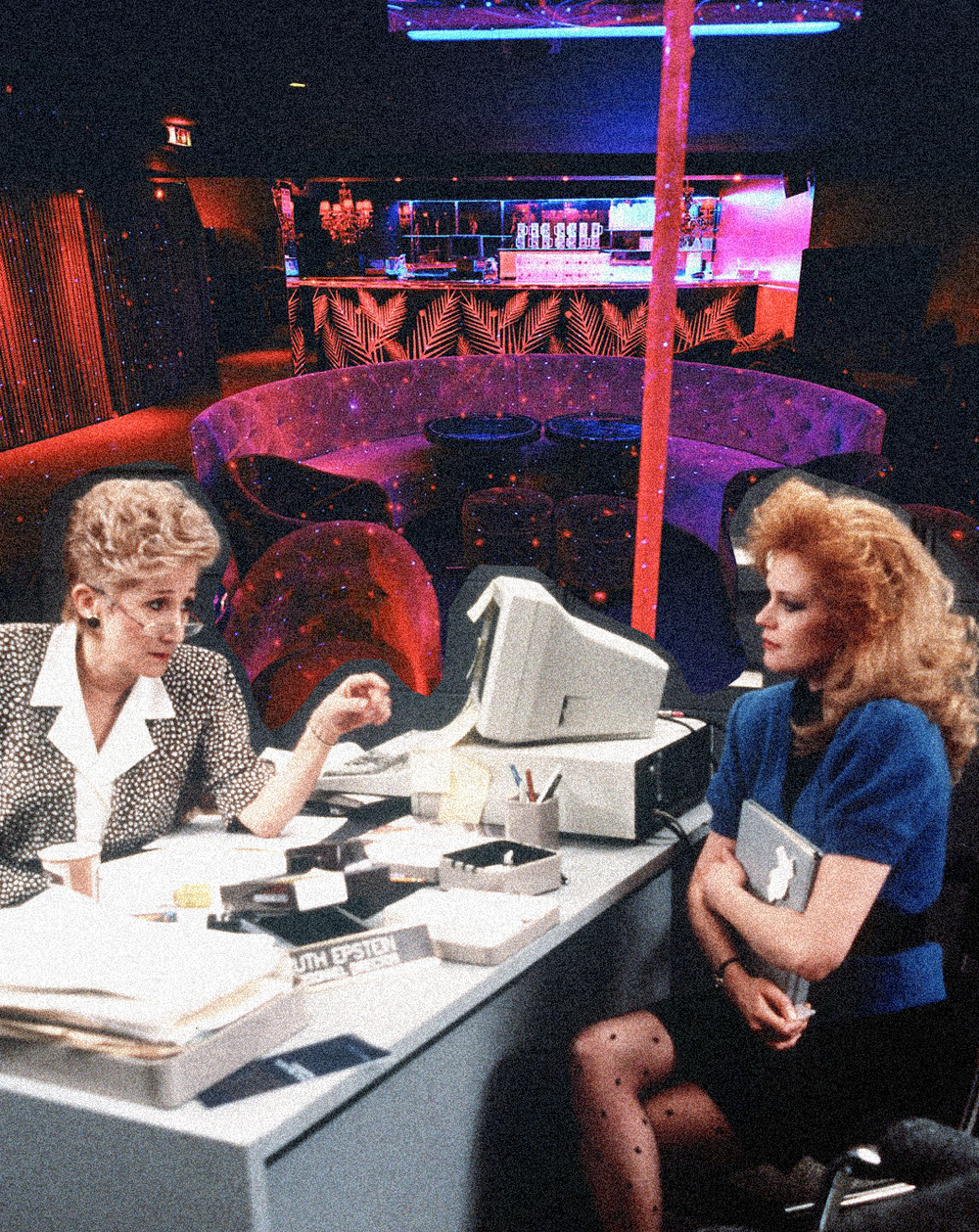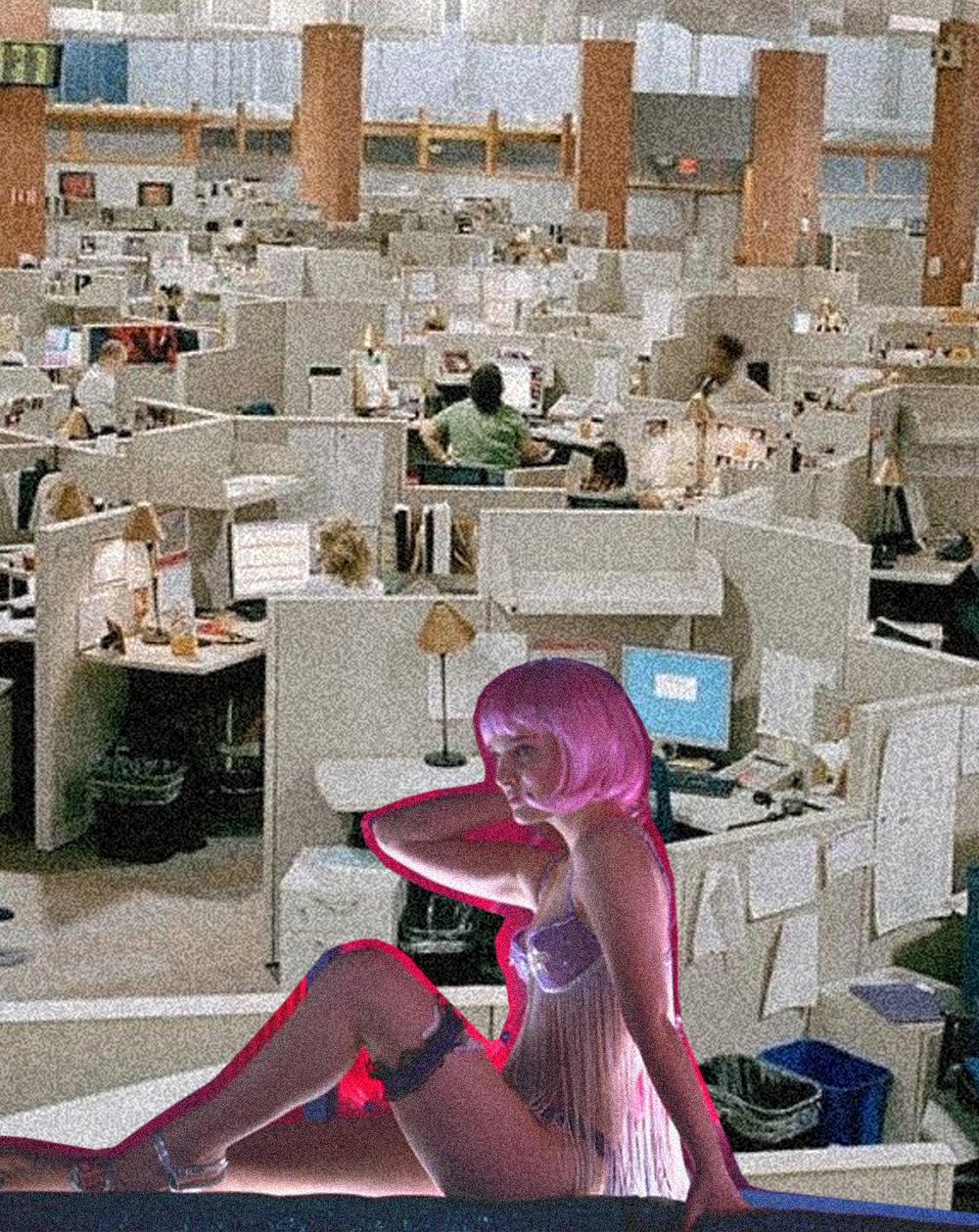Queer Whore Collective: Sex Worker Prejudice in the National Health Service
‘Have you heard of Indeed?’
That was what my therapist asked me, after I had explained the details of an interaction I had with an awkward client. I hadn’t had much say over which therapist I would speak to; I’d been on an NHS waiting list for 18 months before I had been offered a chance to have ten sessions of online CBT therapy. Now I was sitting in my living room, laptop balancing on the arm of the sofa, whilst the person who was supposed to be talking me through my past traumas and teaching me methods and skills for dealing with extreme anxiety explained the ins and outs of a job search engine. She reassured me that there was all sorts of jobs out there, I could try my hand at anything. To her any other job was acceptable, but sex work was too close to the bone, not an acceptable role for someone with experience of childhood sexual trauma.
Her question completely took me a back, I’m not normally a person to be lost for words. In fact I’m quite adept at talking utter bollocks to people I don’t know, hence why I’ve always been a GFE (girlfriend experience) provider. But in this instance, in a space that was supposed to be safe, I lost any come back I might have had. Instead, I opted for silence. The exact same silence I opted for as a child after I had been sexually abused. Once the session ended I played back what had been said in my head. I felt a hot anger creeping up my neck, but I didn’t know why, she’s the professional am I being unreasonable? I had been so desperate for therapy, buoyed with the tales others had regaled me with from their own experiences with therapists. I wanted that breakthrough, I wanted to get hold of my racing and intrusive thoughts, wanted the opportunity to experience a day without crippling anxiety that held my body in a tight grip. I was so ready for my opportunity to be able to cope, that when my therapist told me that it would be difficult for me to carry on with the therapy process if I continued to do sex work, I was stunned. I had felt so evangelical about therapy that I was ready to blindly follow this woman through the process, but what she had just explained to me didn’t make sense. Sex work gave me the opportunity to work when I felt I could, for more money then I would be paid in a job that would require my physical and more importantly my mental presence for 40 hours a week. Sex work allowed me to take time off when I needed, allowed me the space to work through the effects of anxiety. It also allowed me to meet her online diligently at 2pm every Tuesday, without having to move meetings, shifts or constantly explain to people that I couldn’t ‘make it because I have therapy’. Surely, the logistics of sex work allowed me to meet the therapy process with the time, the energy and the privacy that I needed. So why could it be that I couldn’t possibly continue in my profession whilst trying to work through the trauma I’d held on to since I was nine. Lost at what to do I reached out to the Queer Whore Collective to ask for advice in a very much ‘am I the asshole’ moment. But they reaffirmed to me what I felt in my gut, that my job should not be negotiable. That if I was in any other role that required a level of emotional labour I would not have been subjected to the same suggestion of searching a, let’s be honest, subpar job board for a career change. They shared with me their own experiences of mental health care, of being told their job wasn’t healthy or reasonable and of being forced into setting goals that would require them to exit the industry. It became clear in that moment that there’s an epidemic in our health service, an epidemic of whorephobia.
We talk about violence a lot as sex workers, people perceive us to be bodies upon which violence is committed, but these discussions always centre around physical cruelty. I walked into this job expecting to come up against male aggression, but what I never expected was the everyday jabbing of institutional violence. Before I had started escorting I had viewed my interactions with healthcare services in a positive way, but since being open about my working status with healthcare providers I’ve come up against wall after wall of preconceptions, biased opinions and a belief from some that we put ourselves at unnecessary risk. Most recently I’ve had to; fight with an out of hours Doctor for antibiotics for a urinary tract infection, beg a sexual health provider for a throat swab and for the past 4 months chase service after service for a monkey pox vaccination - which sex workers are denied despite the fact that our work puts us at a higher risk of infection.
Healthcare inequality isn’t new, I’m acutely aware that I write this as a white woman, especially after a report released last year that found that 65% of black people living in the UK have been discriminated against in healthcare settings because of their ethnicity. I’m also not one to bash the NHS. I think as a service it’s incredible what it strives to provide and what it manages to achieve in a time of economic and political uncertainty. It is because of my belief in what it can accomplish as an institution that I think it is vital to be brutally honest about where it fails. I work in a profession that skirts along the edges of public acceptability, but what I do to pay my rent should not affect my ability to receive fair healthcare. I’m not naive, I’m sure there are elements of what happened to me that maybe pushed me or, if not made me able to handle a job that in it’s extremes can be quite dangerous and is also incredibly physically and emotionally draining. But is that not true of many professions? I could have followed my mum into nursing but after witnessing her come back from each shift more physically exhausted, more emotionally damaged and with no more money than she was being paid when I was 6, it didn’t seem like a dream career. Watching her wake up the next morning and put on her uniform after having been knocked out by a patient in the sluice room didn’t exactly confirm that her job was safe. But, if my Mum had explained her story to my therapist would she have offered her the same advice?
So, what did I do?
I took some time after the session to think through what had happened, I tried my best to consider where she was coming from when she recommended a career change. I discussed what happened with my girlfriend, with friends and with other sex workers, but the only conclusion that I could come to was that her preconception of what my job was, meant that I couldn’t continue therapy with her. In that one question she had removed any opportunity we had at building a safe space. In our next session I explained my anger and informed her that I couldn’t continue our sessions as I didn’t feel I could trust the space. She simply said ‘I’m sorry you feel that way’. I asked to be put back on the waiting list and deliberated for a week about making an official complaint before I did what had always come naturally - majorly disassociated from the situation and pretended that it had never happened. Six months later I got a call from an unrecognised number, it was my newly assigned therapist asking if I could make the next morning for an introductory face-to-face session.
“I’m working hard to confront my trauma and I’m grateful for the freedom my job allows me to meet this process head on.”
I walked into that session tense and ready to get the next ten weeks out of the way. At least then I could reassure myself I had tried. My new therapist opened the session by apologising for what had happened. She gave me the space to talk about how that interaction had affected me and assured me that she would not pass judgement on my job, and above all would never suggest that I needed a career change. In those first twenty minutes I felt my body relax. I was ready, again, to believe in the heady dream of being able to ‘cope’. We’re now several weeks into the therapy process and I can speak truthfully and honestly about work in these sessions. I’m working hard to confront my trauma and I’m grateful for the freedom my job allows me to meet this process head on. I’m now able to progress with confronting my anxiety because a space has been created for me that does not question my career path and does not place the weight of others preconceptions upon my body.
Annabelle is a sex worker and writer. The former pays the bills, the latter keeps her heart full. She’s a Londoner whose work is inspired by the city, the experience of touch and the structure of power. You can catch more of her writing at @whores_handbags.


